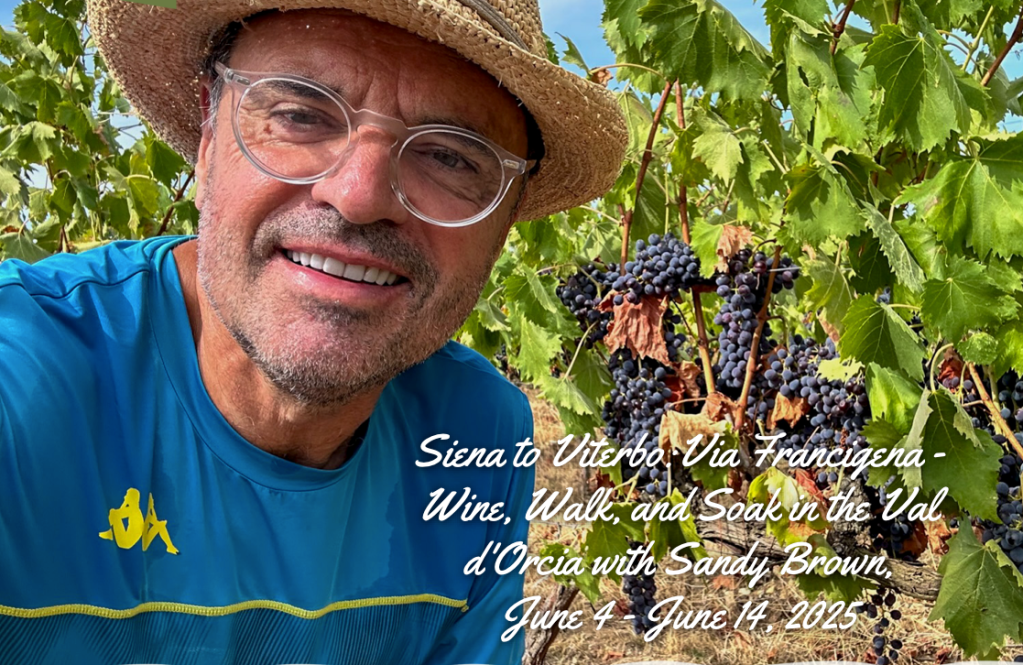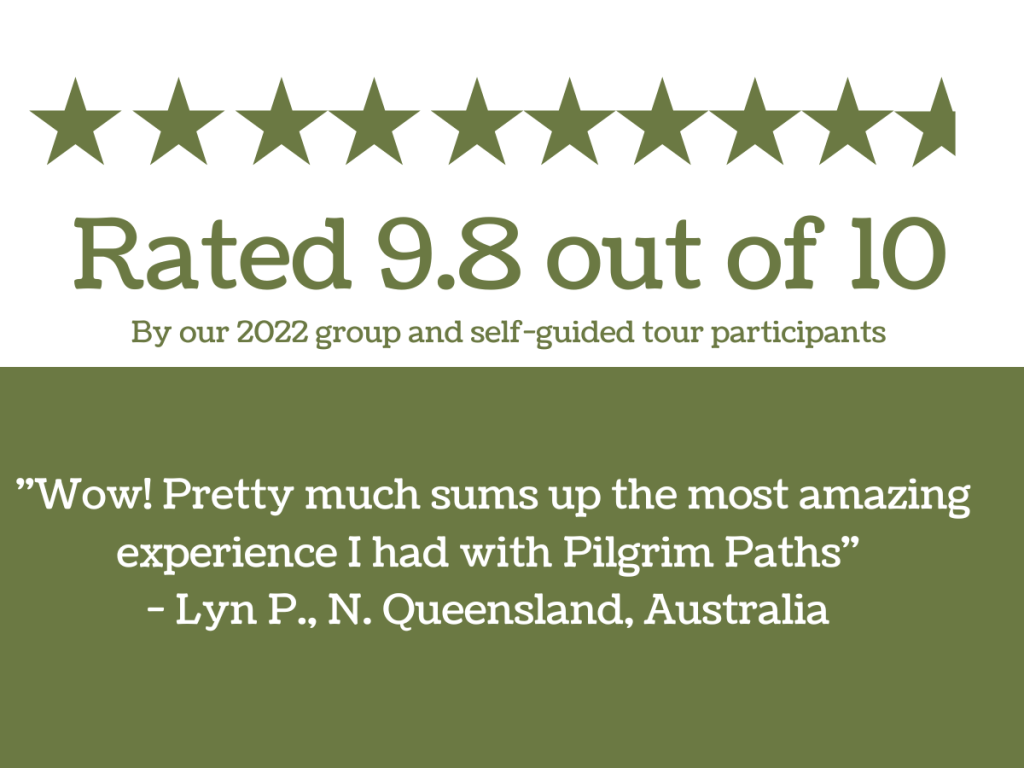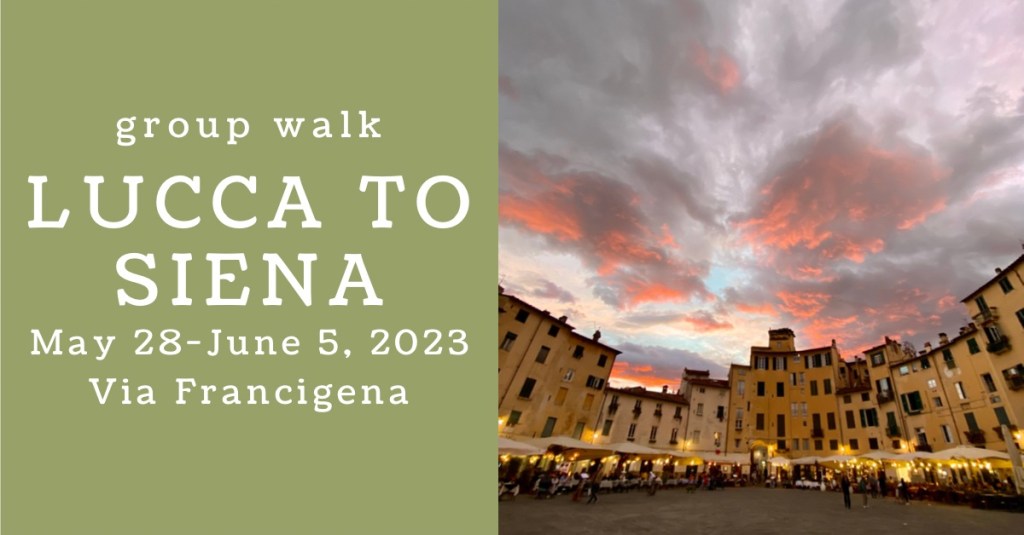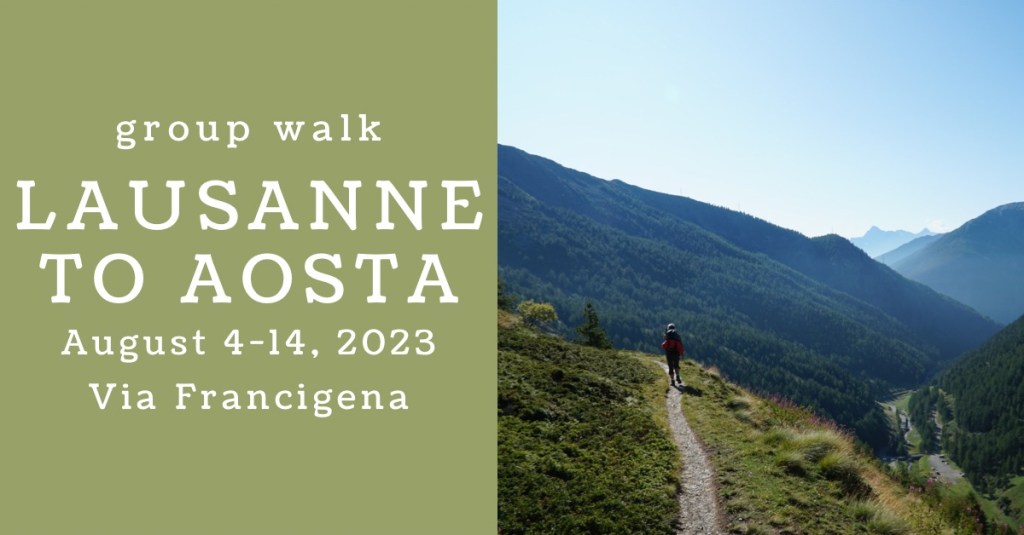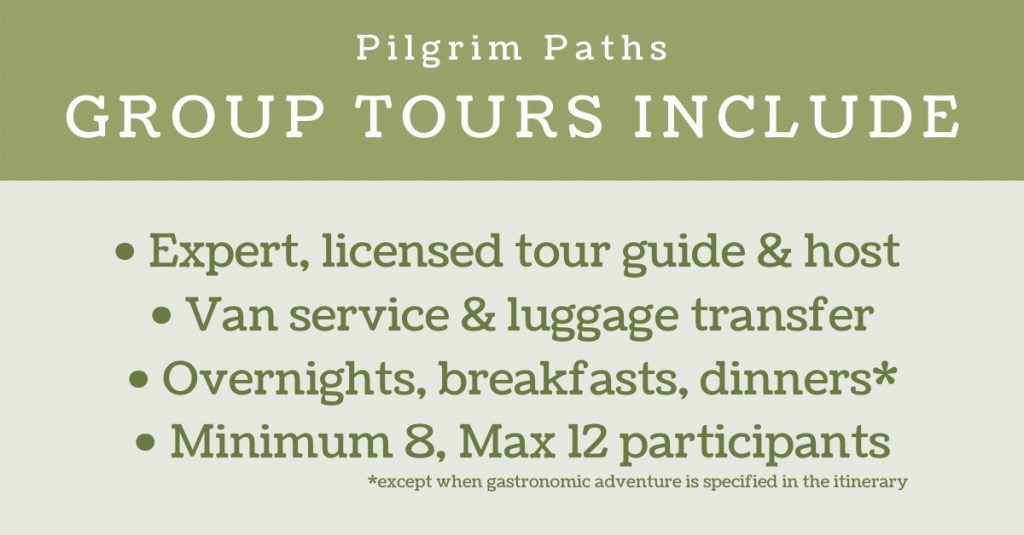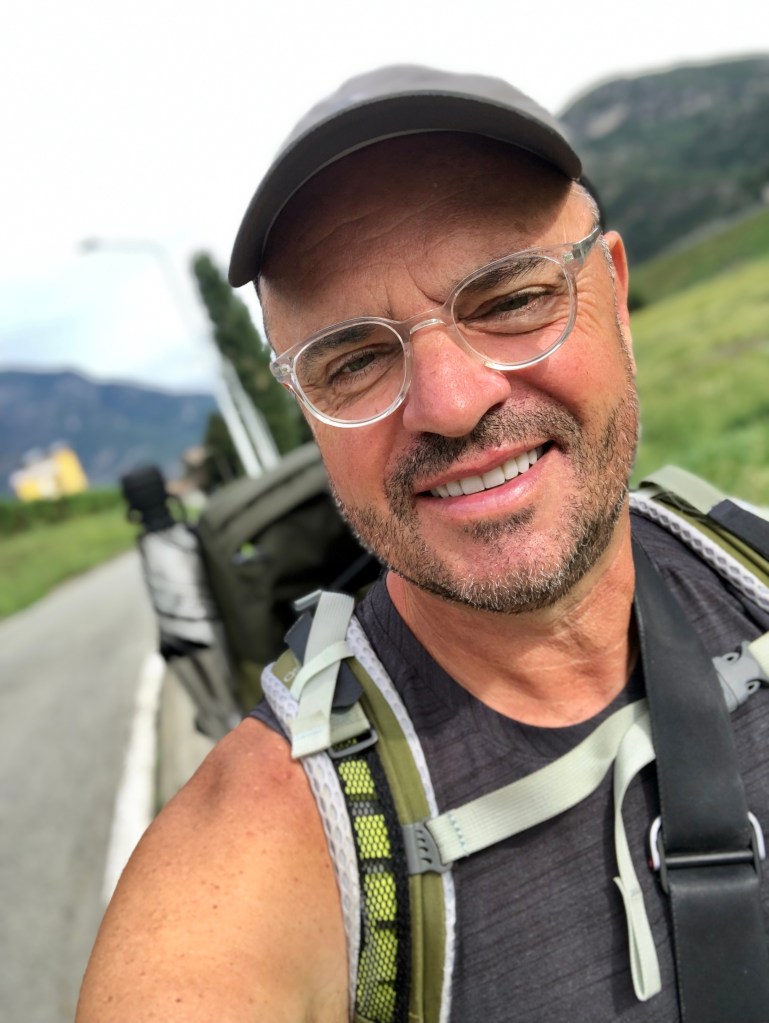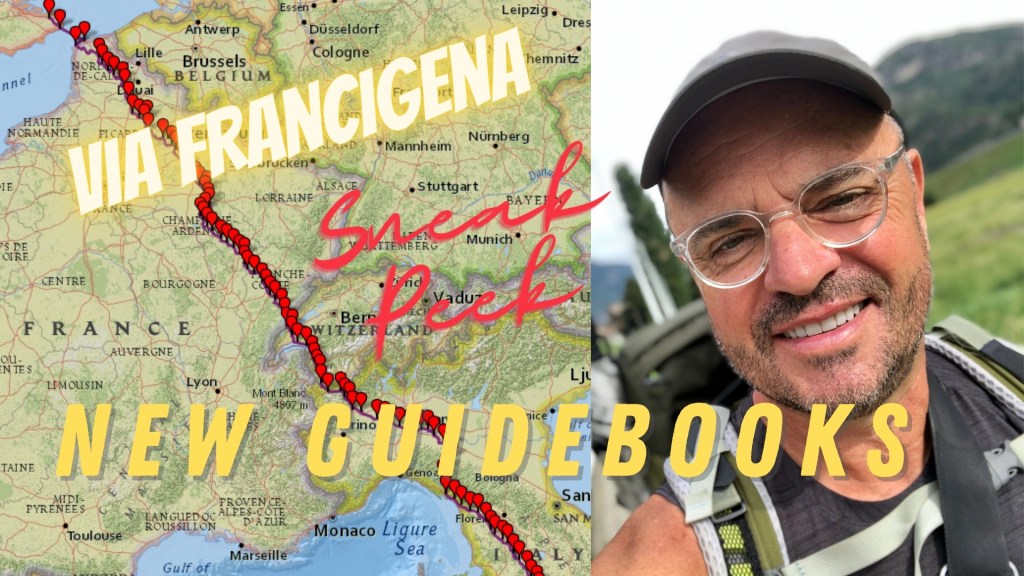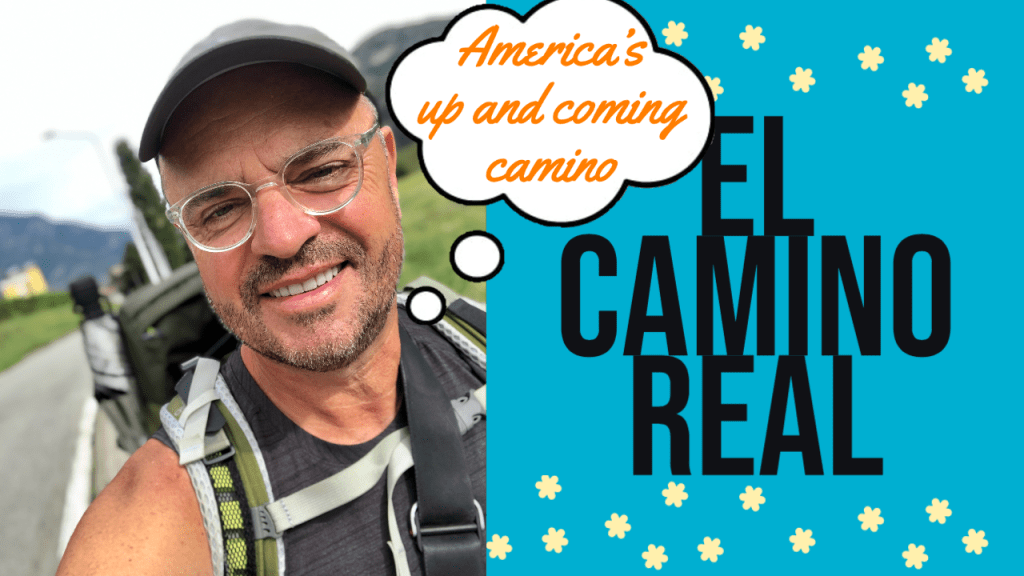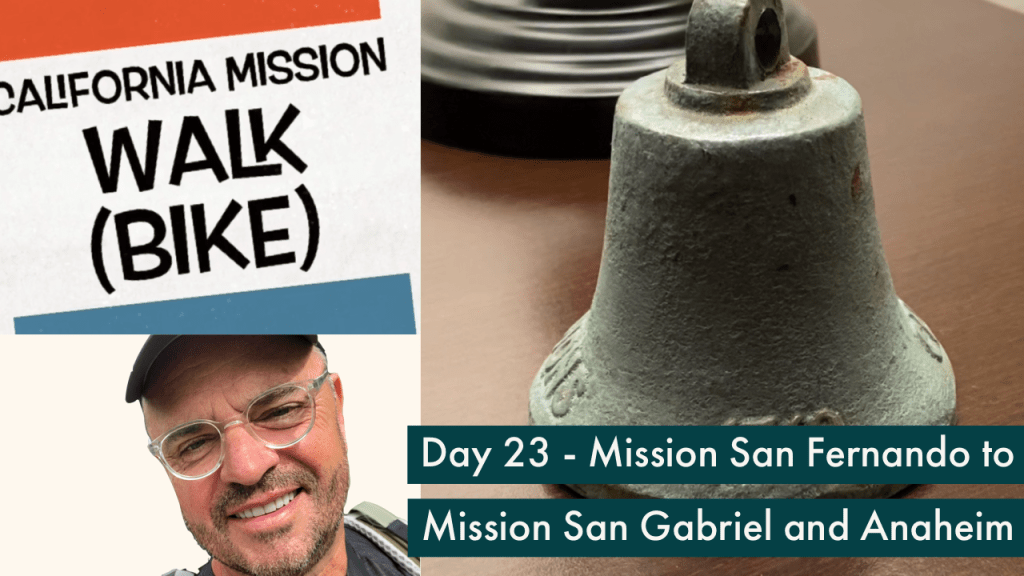Our 2026 Pilgrim Paths season is nearly open, and we’re thrilled to announce a new collection of small-group guided treks across some of Europe’s most inspiring pilgrimage routes. Each journey blends history, culture, and community — most with the full support of experienced guides, comfortable accommodations, and van assistance for luggage and transfers.
From Portugal’s Rota Vicentina in March to Italy’s Via Francigena from Bari to Leuca in April, our spring season begins along sunlit coastal and countryside trails. May brings the beauty of Tuscany and Umbria with treks from Lucca to Siena, Rieti to Assisi, and Florence to La Verna on the Way of St Francis. We’ll also travel north to France for the Via Podiensis from Le Puy to Conques and west to Spain for the Camino Inglés to Santiago de Compostela.
Each group is limited to 15 pilgrims, ensuring a friendly and supportive walking community. You’ll enjoy guided insights into local history and sacred sites, delicious regional meals, and time each day to walk at your own pace.
Whether you’re a seasoned pilgrim or a first-time walker, 2026 offers a perfect opportunity to rediscover Europe on foot— one step, one story, one sacred path at a time. Explore more at pilgrimpaths.net/guided-group-tours.
2026 Via Francigena Pilgrimages
April 7–17 – Bari → Santa Maria di Leuca (Italy)
Journey through Puglia’s olive groves and whitewashed towns to Italy’s sunlit southern coast. More info here.
May 3–12 – Lucca → Siena (Italy)
Experience Tuscany’s vineyards, walled towns, and rolling countryside between two Renaissance gems. More info here.
August 4–13 – Lausanne → Aosta (Switzerland / Italy)
Cross the Alps via the Great St. Bernard Pass — a breathtaking link between Switzerland and Italy. More info here.
October 25–November 4 – Siena → Viterbo (Italy)
Continue along ancient Roman roads through Tuscany and northern Lazio toward the Eternal City. More info here.
Via di Francesco Pilgrimages
April 25–May 5 – Rieti → Assisi (Italy)
Walk serene Umbrian valleys from Rieti’s springs to Assisi’s basilicas. More info here.
May 12–19 – 1 of 4: Florence → La Verna (Italy)
Ascend from Florence’s Renaissance beauty to La Verna’s mountain sanctuary. More info here.
May 18–29 – 2 of 4: La Verna → Assisi (Italy)
Follow forested Franciscan paths to Assisi’s sacred skyline. More info here.
May 29–June 6 – 3 of 4: Assisi → Rieti (Italy)
Trace St Francis’s footsteps through quiet Umbrian hills and medieval villages. More info here.
June 6–12 – 4 of 4: Rieti → Rome (Italy)
Complete the Franciscan Way on pilgrimage to Rome, entering the city as pilgrims have for centuries. More info here.
September 21–October 8 – Florence → Assisi (Italy)
Traverse forests and hill towns from Florence to Assisi in a full-length Franciscan journey. More info here.
October 9–25 – Assisi → Rome (Italy)
Journey south from Assisi through Lazio’s peaceful countryside to the heart of Rome. More info here.
Camino de Santiago
April 21–May 4 – Camino Inglés (Spain)
Follow English pilgrims’ coastal path to Santiago’s soaring cathedral. More info here.
April 30–May 10 – Via Podiensis: Le Puy → Conques (France)
Cross volcanic highlands and medieval villages on France’s historic Camino. More info here.
September 1–16 – León → Sarria & Santiago (Spain)
Walk Spain’s classic Camino Francés from León to Santiago — the quintessential Spanish pilgrimage. More info here.
Great Hikes of Europe
March 14–24 – Rota Vicentina (Portugal)
Walk Portugal’s rugged Atlantic coast through cliffs and fishing villages. More info here.






